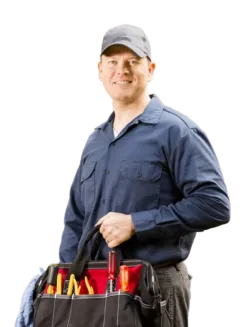With so many different heating options, it can be challenging for homeowners to decide which will best fit their specific needs. We’ve done the hard work and gathered information that will help you better understand heat pumps in particular and how they work. Our knowledgeable team here at Efficient Systems is glad to guide you in the right direction of HVAC repair or replacement whenever you need it!
Is It Time To Replace Your Heater?
There are several common signs of HVAC issues to watch out for when you’re turning your heater on for the first time this winter. Persistent rattling sounds, poor indoor air quality and abnormally high energy bills are all indications that your heating system needs professional attention. These systems are also more likely to fail the older they get, with the typical lifespan averaging from about 15 – 20 years. At this point, the most practical decision is to upgrade your heating unit to prevent frequent repairs from adding up over time and becoming an unnecessary cost.
Popular Heating Options
Different heating systems require different sources of energy to function, and the two most common are gas and electric-powered units. These units include HVAC systems like furnaces powered by gas, and electric heaters and heat pumps which run off, you guessed it – electricity. Specific systems are more likely to fit individual needs depending on where you live and the intensity of the seasons.
Heat pumps can be especially useful for saving energy in areas that experience relatively mild winters. Many homeowners prefer these systems because of their capability to both heat and cool your home, as well as reduce energy consumption which often equates to a lower bill. In fact, there are many potential advantages that come with switching to a heat pump.
Heat Pump Installation Advantages
- Reduced carbon emissions
- Heats and cools your home
- More efficient compared to other options
- Helps control humidity
How Heat Pumps Work
These dual indoor-outdoor systems run like an air conditioner in the summer by removing warm air from inside of your home while also circulating cooled air back inside. A necessary component called a reversing valve is what allows the heat pump to supply warm air to your home during winter by operating the system in a reverse process.
During the winter, warmth is accumulated from outdoor air and redistributed throughout your home which eliminates all the extra energy required to generate heat from scratch.
This process is what makes the heat pump more energy efficient compared to other traditional options.
Saving Energy Saves Money
Heat pumps are especially good at what they do. The Department of Energy (DOE) states that these systems can provide up to three times more heat energy to your home than what it consumes in electrical energy. Because of this, switching to a heat pump can save the average household approximately $450 – $950 annually in utility costs, or between 3,000 – 6,200 kWh.
Reliable Beaumont Heater Replacement
Efficient Systems has provided Southeast Texas with all of the best HVAC maintenance and professional heater installation services since 1979! With the winter months quickly approaching, we encourage you to make sure your heating system is operating efficiently to prevent any last-minute complications. Call us or check out our website to learn more about our current HVAC tune-up and repair specials!










